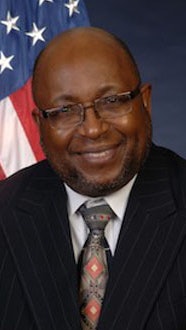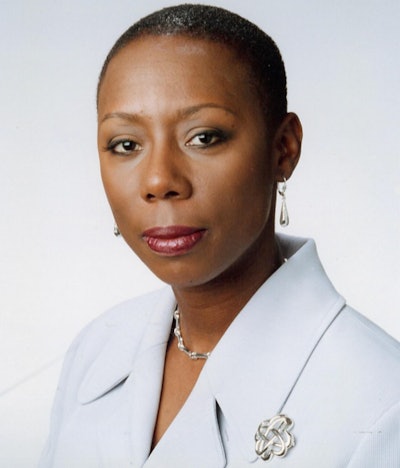The National Historically Black Colleges & Universities (HBCU) conference provided opportunities for HBCU faculty, staff, and students to learn about funding and grant opportunities at the federal, state, and local levels.
On Thursday, experts reflected on HBCU resiliency and their ability to do less with more, while urging HBCUs to think outside the box and get involved with emergency management programs to counter the effects of climate change.
“As we know, we in the HBCU community have not gotten our fair share of resources,” said Dr. Willie E. May, vice president for research and economic development at Morgan State University. “Over the last decade, federal funding for Primarily White Institutions (PWIs) increased 20%. At the same time, support, which was always meager, has gone down for HBCUs by 20%. [HBCUs] get less than 1% of total federal allocation for research. This administration is committed to increasing that, but there are things we can do as well.”
 Dr. Willie E. May
Dr. Willie E. May
“These are not grants,” said May. “These are more like contracts to allow us to partake in the work of the government.”
Evelyn Kent, director of the Office of the Secretary of Defense’s (OSD) HBCU/Minority-Serving (HBCU/MI) Program, wore her Southern University and A&M College colors, blue and yellow, as she explained her program’s opportunities.
“Partners in Army, Navy, Air Force work together as a team to make sure this OSD program leverages funding with service,” she said.
The HBCU/MI program offers up to $700,000 over three years to fund research, and offers equipment grants of the same amount given over one year. Additionally, they offer students summer internships and faculty fellowships. Students are brought into a Department of Defense (DOD) lab to be mentored, and faculty are presented with a fully funded three-year opportunity to focus solely on research.
“We want to increase the number of graduates with masters and doctorates from HBCU/MIs," said Dr. Reginald Williams, acting director of the HBCU/MI Program with the Navy. "We want to develop stronger balance between research and academic requirements.”
A second partnership, launching soon, will create an opportunity exclusively for HBCU/MI institutions that will fund research over a period of five years. The goal is to make more HBCU/MIs R1 level research institutes.
“R1 status for applicants will show expenditures in science and research, get scientists with research into the institution,” said Williams. “Maintaining that status is like a contact sport and requires continued activities, submitting grant proposals, including grad students, and producing Ph.Ds.”
HBCUs like Morgan State are aiming to become R1 level by the end of the next decade.
Students interested in working with the DOD are encouraged to apply for the SMART program: Science, Mathematics, and Research for Transformation. Students who meet the eligibility requirements will receive one-year of paid tuition and a one-year contract working at the DOD. Applications for the SMART program will close in December.
The Army and Air Force representatives encouraged researchers to see where their area of expertise might connect or overlap with areas of desired growth and modernization in the forces. There are competitive grants for students and faculty alike. And, as applications must be peer reviewed, HBCU leaders are also encouraged to sign up to become a peer reviewer to increase the diverse perspective.
Dr. Goulda Downer, principal investigator and an associate professor at Howard University’s College of Medicine, said she hopes to see an increase in diversity at emergency management organizations. Almost 60% of HBCUs are located in southern states, most likely to experience natural disasters and hardships.
“We want to get our students involved in this field,” said Downer. “We hear a lot about diversity, equity, and inclusion; but this will miss if our communities are not included.”
Downer encouraged HBCUs to form their very own CERT: Community Emergency Response Team. Only 25% of HBCUs she surveyed reported actually having a CERT program on their campus.
Elizabeth City State University (ECSU) in North Carolina, conducted a case study on beginning and operating its own CERT program for the last three years, said Dr. Kevin Kupietz, the chair of the department of aviation and emergency management at ECSU.
“We believe emergency services should mirror the communities they service," he said. "With that idea, CERT comes into play—neighbors helping neighbors, teaching students to be good stewards to their community and make the world a better place.”
One of the biggest challenges in starting the CERT program, said Kupietz, was getting people to understand exactly what CERT was. CERT programs do not replace firefighters or EMS, it supports them. But having administrative buy-in from the top-down helps establish the CERT’s importance.
“We have to step up our game because these incidents are getting more severe. We’re not as prepared as we should be,” he said.
While CERT is important for disasters, the program is not just about getting through the tough times. It’s about building community and expanding opportunities for student success and out-of-the-box thinking.
Billie Udofia with AmeriCorps said she wants to see more students of color embracing the possibilities that blossom when students volunteer.
“We know that volunteerism can have a major, positive impact and improves leadership skills,” Udofia said. “African Americans are underrepresented in emergency management positions. So, when we talk about the correlation with volunteerism and employment, we have an obligation to make a dent in these numbers.”
Udofia said she believes that HBCUs can be a “very strong partner in informing outreach.”
A grant opportunity exists for HBCUs to sign up and become a school of national service, and the application process will open later in the fall. $400 million has been released in partnership with the Center for Disease Control to create 5,000 new AmeriCorps positions.
“Resilience is in our DNA,” said Downer. “The first order of business is to measure campus resilience gaps regionally and nationally. Together we work collectively to fill them, expand on the blueprint for longitudinal success.”
The physical legacy of success and resilience can be preserved with funding from the National Endowment for the Humanities (NEH). Those HBCUs with crumbling buildings or at-risk archival collections, should consider applying for federal, state, or local grants.
 Dr. Goulda Downer
Dr. Goulda Downer
Recently, the NEH awarded a Preservation Assistance Grant to Southern University at Shreveport to protect their Black Ethnic Archives, which includes the complete run of the Shreveport Sun, a Black newspaper founded in 1920.
There are small and large funding opportunities from the NEH, as well as opportunities to receive matched grants for larger projects. A $365,000 matching grant was awarded over five years to the HBCU Library Alliance, which will assist in building capacity, fundraising, documenting cultural heritage, increasing accessibility, and promoting the humanities.
Hart offered best practice tips for application and encouraged applying more than once after receiving feedback.
“You can get in touch with us,” she said. “Part of our job is to help you put together the most competitive application you can.”
Liann Herder can be reached at [email protected].
















